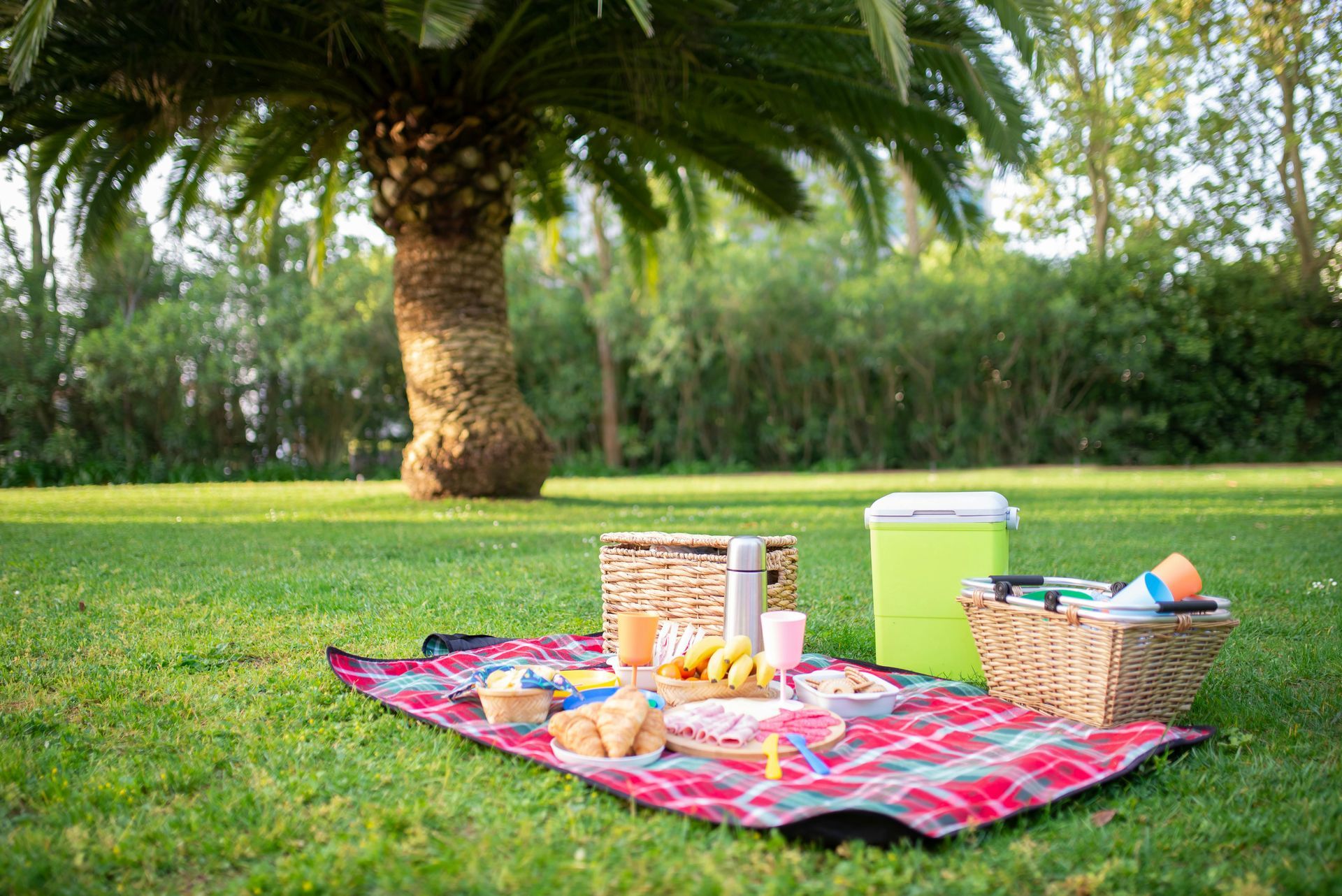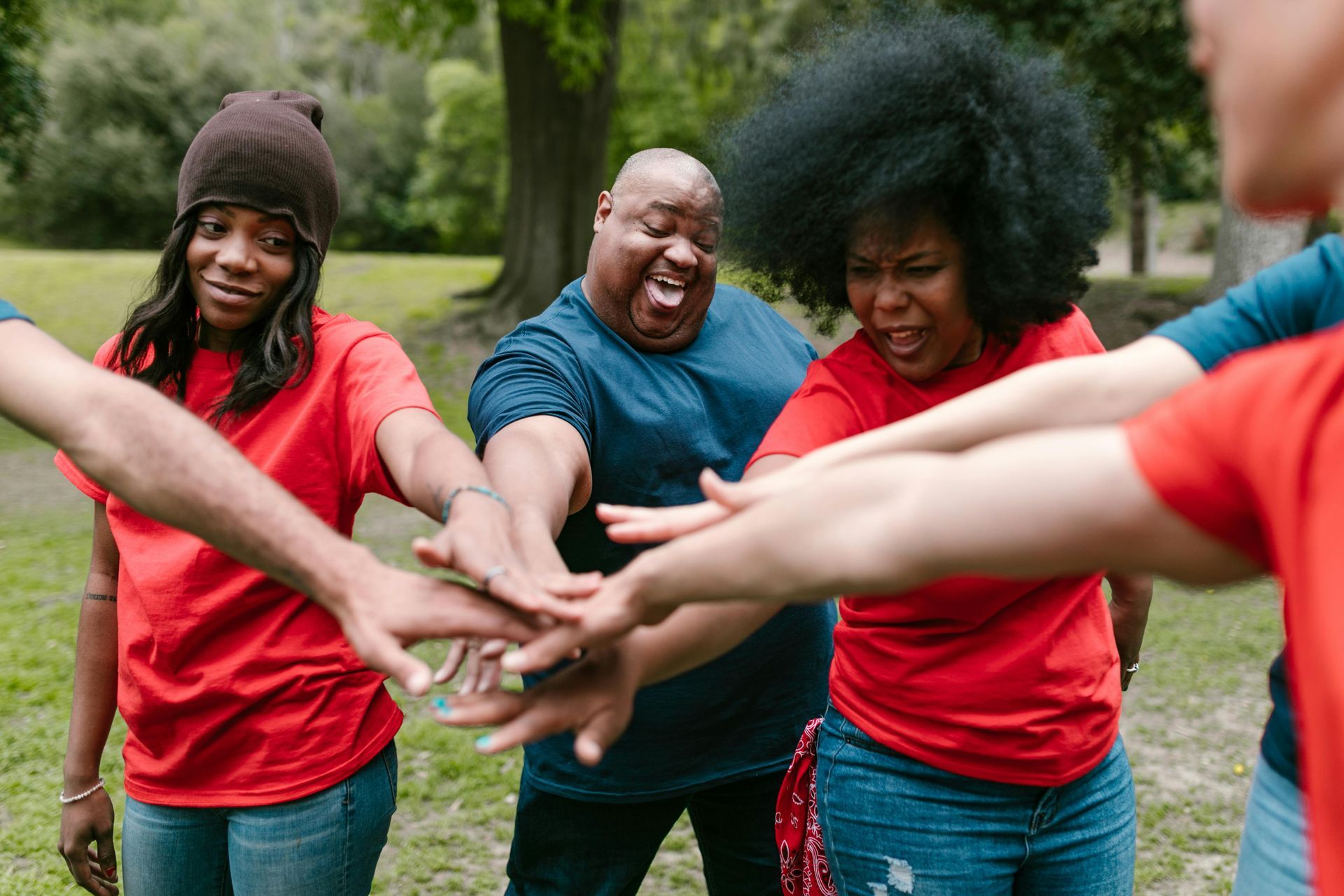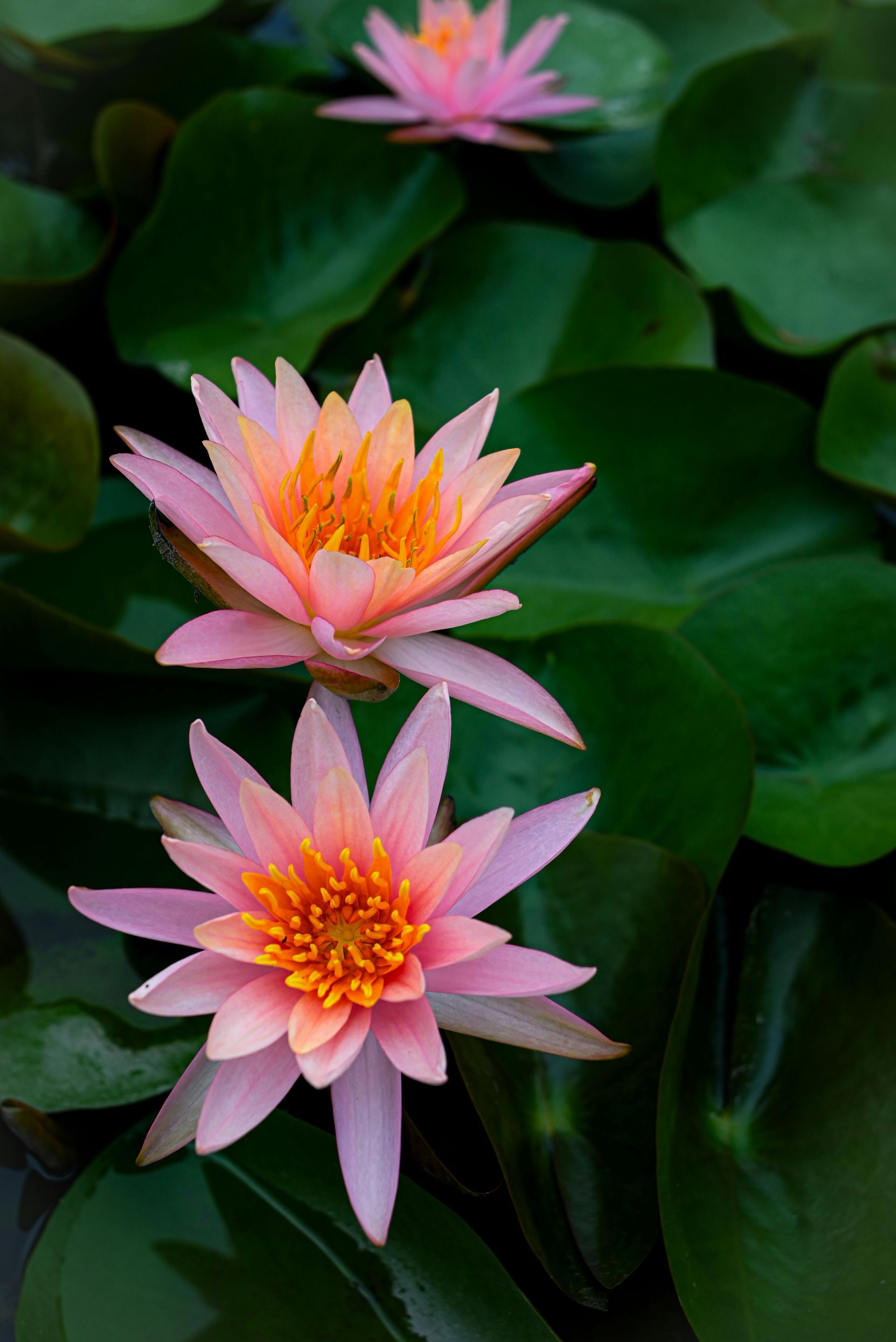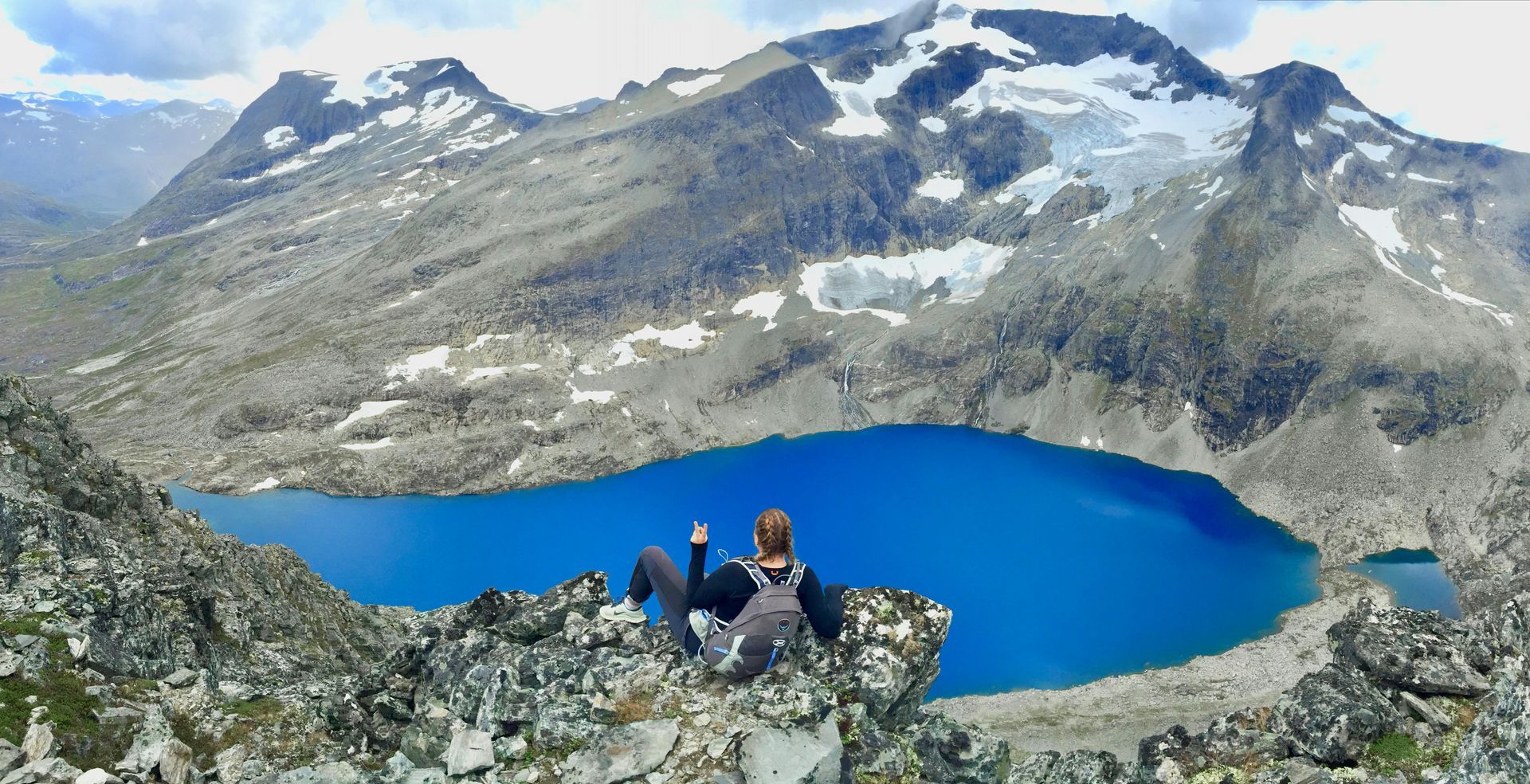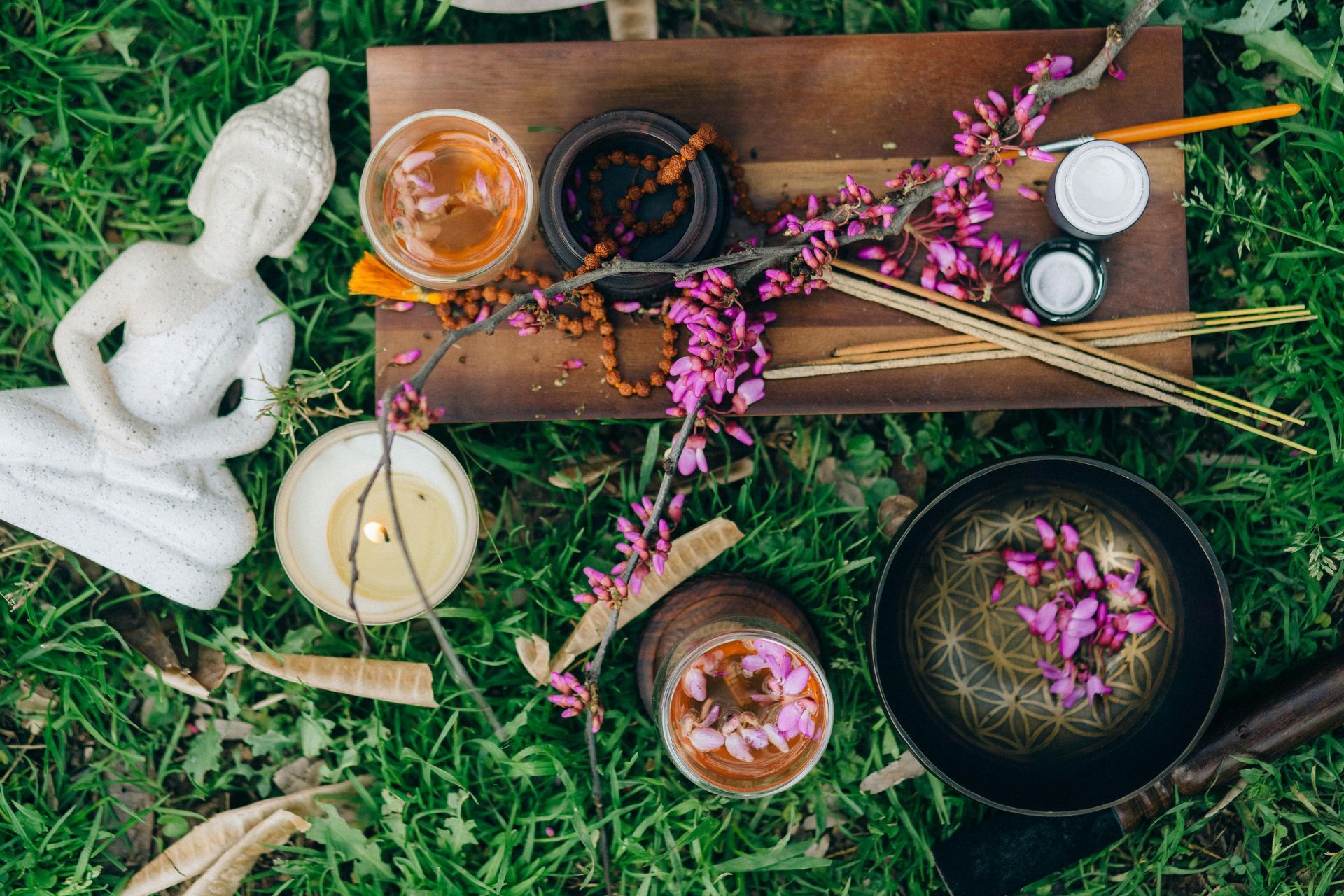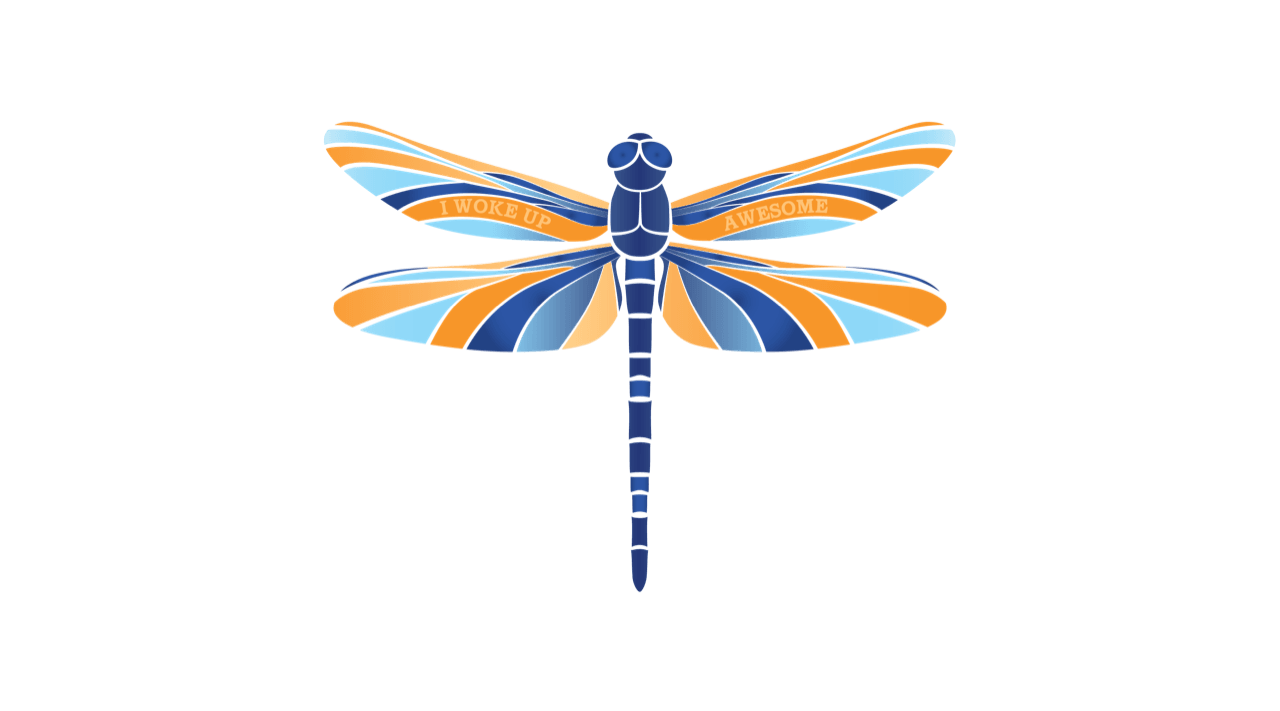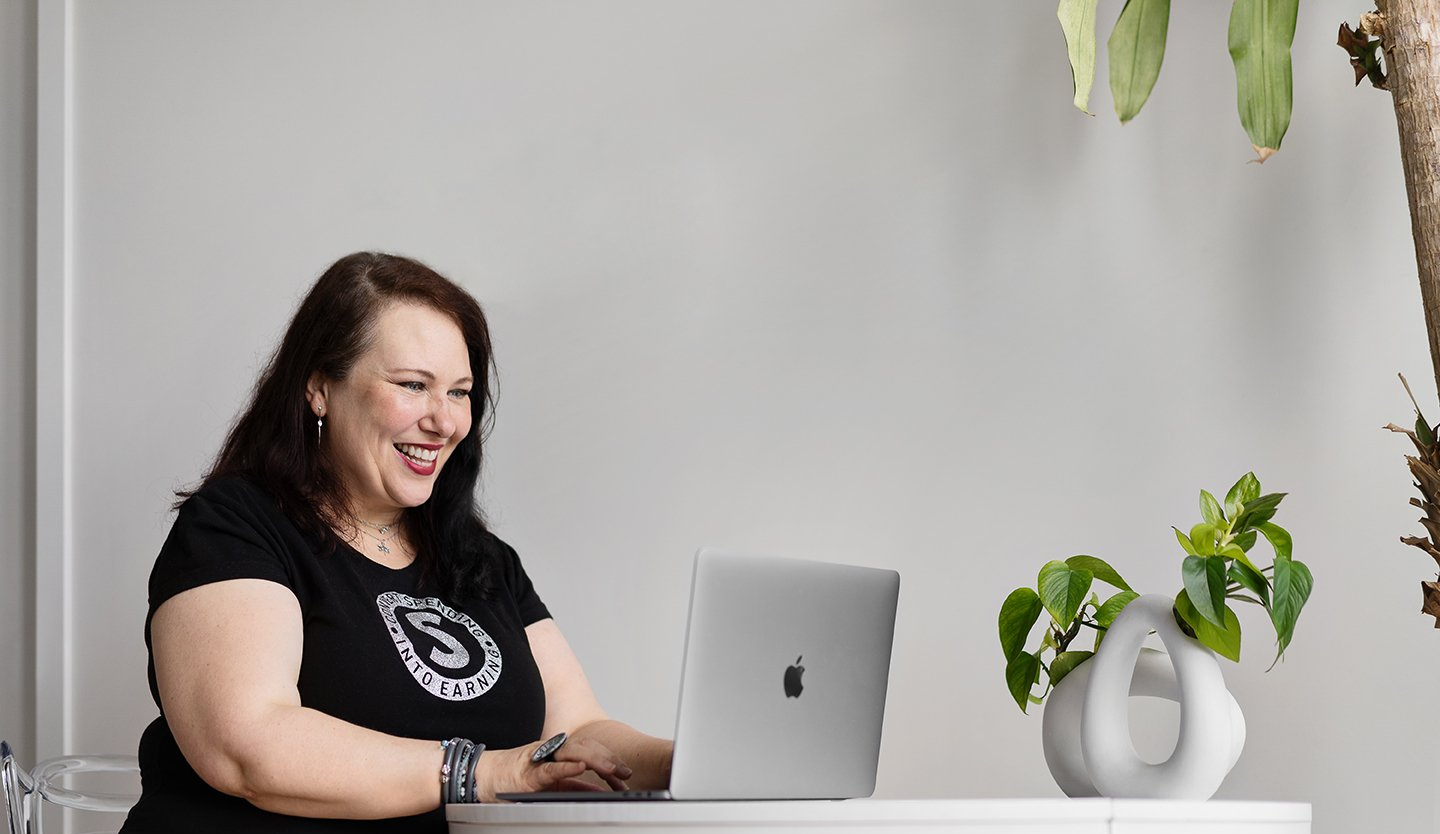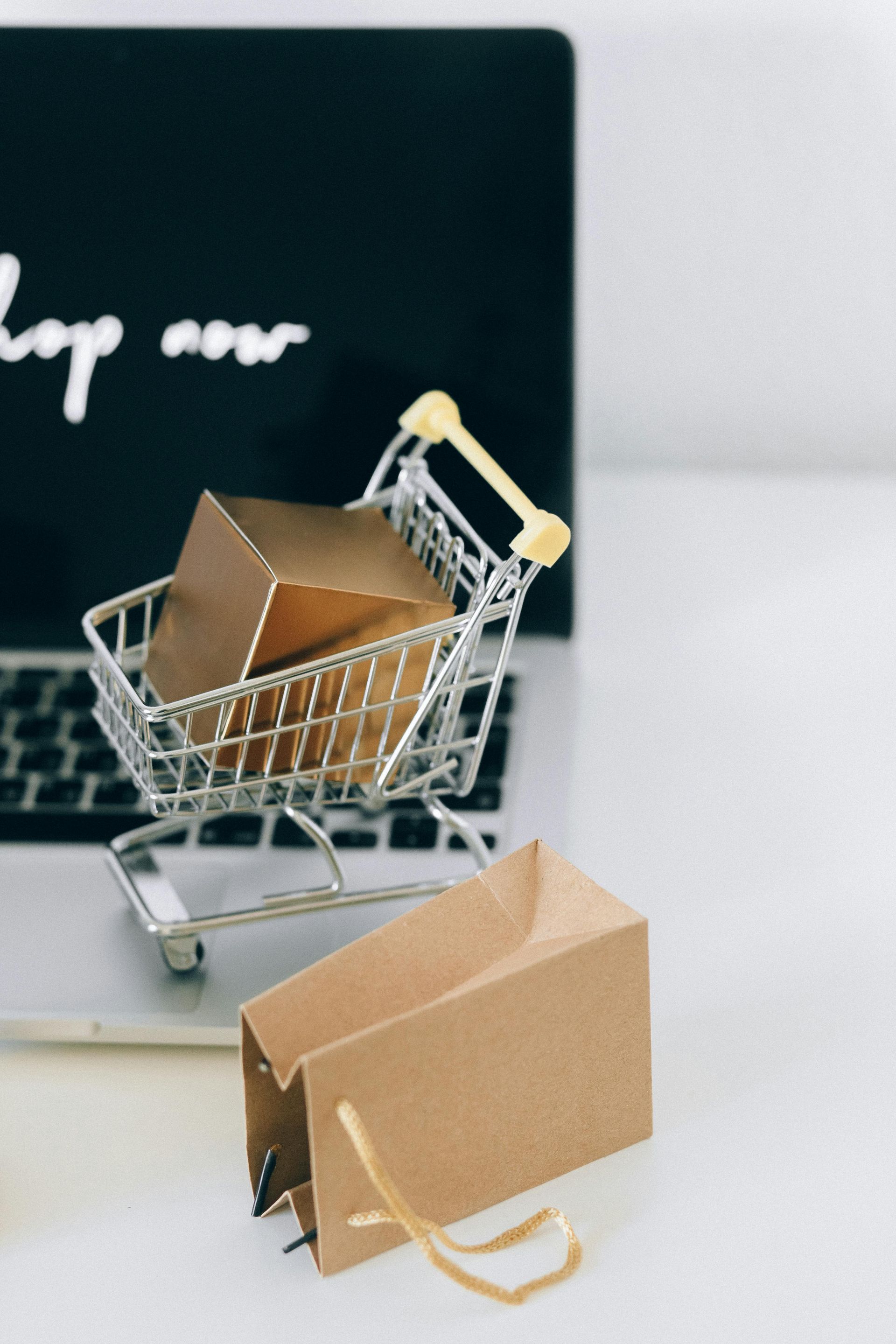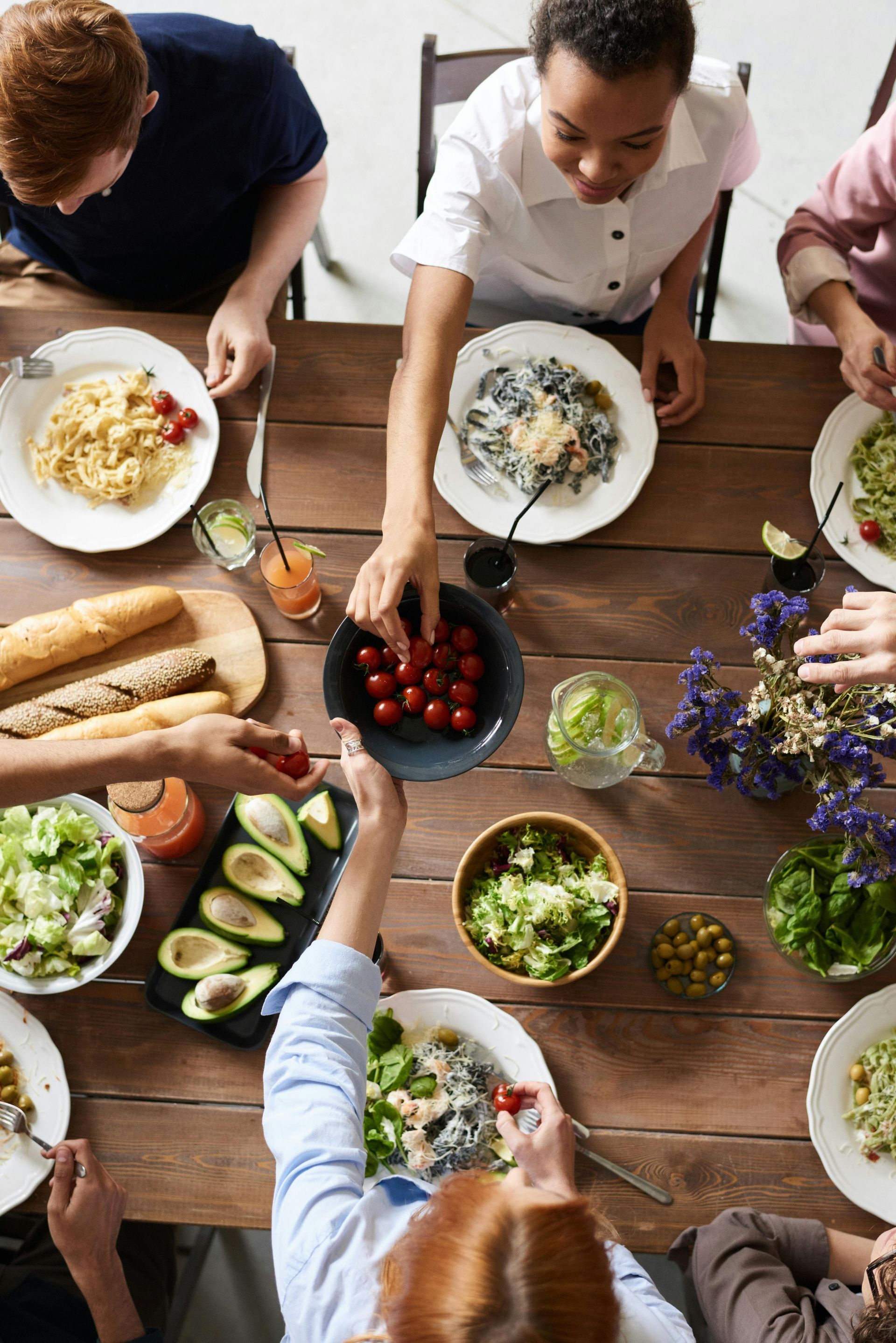Meet Puntam V. Sexna of Atlanta GA
MILKMOM - Plate 52
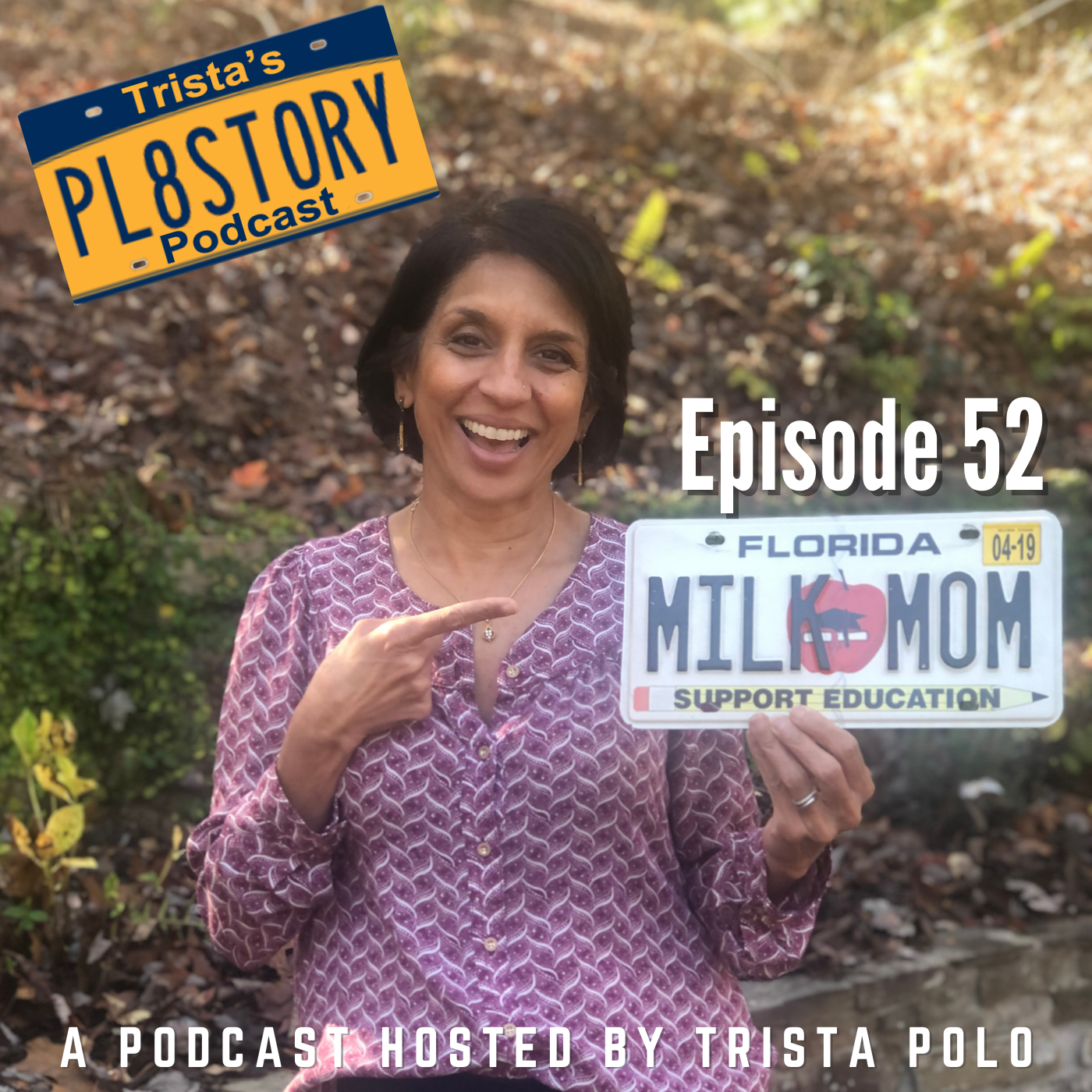
This week we meet Punam V. Saxena of Atlanta GA. Punam holds a Bachelor's degree in Psychology and a Master's in Education. She is a mother of 4 college-aged children. She taught for 10 years and then spent 20 years volunteering in her children's school in their classrooms and working with their administrators. She has implemented several processes that have benefited many children at the school. Punam is currently the host of the podcast edu-Me which focuses on bridging the gap and fostering a stronger relationship between parents and schools by empowering parents to become partners in the school. Punam is currently an author in the making writing an education book and a children's book.
Connect with Punam:
https://www.edu-Me.net
https://www.instagram.com/theedume
https://www.facebook.com/theedume
https://www.twitter.com/edume19
Trista's PL8STORY Podcast Links
Nominate a plate - https://www.pl8story.com
Meet your host - https://www.iwokeupawesome.com
Subscribe to Trista's PL8STORY Podcast on Apple Podcast (http://bit.ly/itunespl8story), Google Podcast, Spotify or your favorite podcast app and access all published episodes
Episode Transcript:
[00:00:00]Trista, Host: [00:00:00] Welcome to this week's episode of Trista's PL8STORY (Plate Story) Podcast. I'm Trista Polo from iwokeupawesome.com and I am your host. Each week, we learn the story behind that vanity plate. You know, the one you saw driving down the road... what did it say? What did it mean? Why did they choose it? Welcome. I'm so excited for this week's episode. The plate is MILKMOM and my guest is Punam Saxena from Georgia and I just love why you chose this plate? Welcome, punam.
Punam Saxena: [00:00:33] Thank you so much Trista. I'm so excited to be here.
Trista, Host: [00:00:37] Yes.
I'm excited to have you now tell us about, well, first I want to make it a little caveat just for full disclosure. This is a past plate that you had and you actually retired it. And we're going to talk about that, but when you chose this plate and had it for many, many years, what's the story behind it.
Punam Saxena: [00:00:57] So I have four children [00:01:00] and they are four and a half years apart. My last two were twins and I'm sleep deprived. I'm exhausted. And in the middle of the night, I literally rolled over and slapped my husband and said, guess what? And he thought that I had some brilliant thing to share with him. And my brilliant thing to share was that our children's initials spelled M I L K.
He did not find that asex citing as I did. And so he went back to sleep, but I might awake God, this is fantastic. So that's how I became MILK
Trista, Host: [00:01:44] MOM
mom. I just have to say, I love that. I love with when things you know, spell other things. I had a phone number for a really long time and I never realized it. But it actually spelled out G O D [00:02:00] P H O N.
Punam Saxena: [00:02:02] Oh wow.
Trista, Host: [00:02:03] And the way we found out this was a long time ago, we were coming home from dinner and there was a message on our answering machine. And a guy had clearly smoked a lot of weed and decided to call God. And so he picked up his phone and spelled out GOD PHONE and proceeded to leave this message on our machine.
Like, God, it's me, I'm calling God's phone. It was just like so funny. So I just always love when things spell out other things. And so I love that you chose that for your place. So
Punam Saxena: [00:02:40] I have to ask now, did you call him back?
Trista, Host: [00:02:46] No, he didn't leave a number in this was way before caller ID. So we had no way to call him back, but we still have the number.
I'm not willing to give it up. We're not using it right now, but I [00:03:00] have it like parked. Cause I do not want to give up God phone.
Punam Saxena: [00:03:04] I wouldn't either. And you never know you might need it too.
Trista, Host: [00:03:08] That's right. Exactly. So you are a mom. And you were a very busy mom clearly. So tell me a little about your life and your job as a mom, as your kids were growing up.
Punam Saxena: [00:03:23] My children, like I said are four and a half years apart. And prior to that, I was in education. I followed the footsteps of both of my parents. My father is a professor, our retired professor, and my mother's sort of retired teacher. And I thought, what better way to spend time with all of these little guys than to in a band, be a teacher.
Sure. But when my oldest came along, I didn't want to go back to work. I thought, gosh, how do you manage work and school and family and husband and all the challenges and [00:04:00] responsibilities you have. Thankfully, I was able to stay home with the first one. And then by the time I thought about going back, our second one came along and I'm like, okay, definitely not going back.
And then of course we had twins, so I had four, four, and under. And that that was just not going to happen. So then I became the lead parent in our family. My husband did have his own engineering company with his father and he ran it. There was a lot of responsibility that he shouldered during that time.
And we needed a parent who could be flexible if one of them got sick or needed to be taken to the doctor. So that's how that role I evolved. But when I was teaching, what I realized was I was in a special education classroom and I didn't have any parent involvement. [00:05:00] Parents did not walk through our doors of the school or the classroom.
Because they felt like, well, it's the school's responsibility. We don't really need to worry about it when in fact they did need to worry about it because it was their child's future. So when my children started school, I ended up volunteering and trying to be that parent. Without being the parent that when you walk through the door, the administration rolls their eyes and goes, she's back.
Trista, Host: [00:05:36] It's a good balance. You've got to
Punam Saxena: [00:05:37] have. Right. Good balance. And it's also something that you have to be conscientious of. You can't just willy nilly walk in. You have to be able to converse in the right way. And I equated to building a relationship without building a relationship you [00:06:00] have nothing. So if you meet someone at a restaurant or let's say at a party or a bar, but none of us are doing any of that.
But when we did. You'd never walked up to someone and said, I want this and you need to do this. But parents do that. When they talk about going into their schools and talking to their teachers and administrators, that's not really the way to do it. So I wanted to be that liaison between parents and the schools to kind of help facilitate those dialogues.
And so many times I had parents come up to me throughout my 18 year career of doing this and ask me, how do you know this stuff? Well, one, I have a degree in education, so I had some idea of what's going on. Even though they change it every 5 seconds, but that's a different conversation, but [00:07:00] it was really about building relationships and getting to a place where they trusted me and I trusted them.
And when we knew that we had the student's best interest at heart, everything else fell into place
Trista, Host: [00:07:16] and
Punam Saxena: [00:07:18] that's kind of how it's evolved. Yeah into what I do now.
Trista, Host: [00:07:23] Yeah. And I want to talk about what you do now. But first I'd love to hear about the reaction to your license plate. So tell me a little about that.
Punam Saxena: [00:07:33] So MILKMOM, you know, kind of denotes many things. Right. And we lived in Florida at the time, which was one of the dairy capitals of the world, unbeknownst to me but I would get a lot of questions of, do you work in dairy?
No. Are you a lactation specialist?
Trista, Host: [00:07:56] Oh, wow. Yeah.
Punam Saxena: [00:07:58] Ah, no. [00:08:00] Do I look like I would be good at that? Mm nah, that's not me. And then when I explained it to them, they're like, Oh, now I get it. But my brother-in-law had a elementary middle and high school friend. And he and I had never met. So I'm driving around and this friend, his name's John, and he's pulls up behind my car, but I'm not driving it. So he pulls around thinking who on earth would have a car that says MILKMOM. Pulls around, looks at the driver and it's my husband.
And thankfully my husband and my brother-in-law look very similar. So he texts my brother-in-law and says, Jay, why is your brother driving a car that says [00:09:00] MILKMOM? So Jay explains it. I still had not met this person. This has been going on for like six years. That every time he saw my car, he would take a picture and say, guess who I just saw. So I'm thinking this guy's a stalker, like I've never met him. I had no idea. So about six or seven years later, we finally meet in person. And it was, it was because our children ended up at the same high school and he comes up to me and he goes, How are you doing MILKMOM I'm like, are you my stalker?
No one else knows this story in the, in the meeting that we're sitting in and they all go, John's your stalker. And I'm like, let me tell you what John has been doing to me for the last several years. So we get a huge kick out of that. John's a fantastic guy. I mean, he really is. He's got a great sense of humor.
But it just goes to [00:10:00] show you how your plate impacts someone else without even knowing it.
Trista, Host: [00:10:08] Well, your plate also really positively impacted parents in the parking lot as well. Can you talk a little about that?
Punam Saxena: [00:10:16] So I had a friend and I'm talking when the recession hit. So 2008, 2009, everyone was kind of working on it, what their finances were going to look like. Even though we all save for the rainy day, all of a sudden we have this rainy day and we're all getting quite anxious.
And one of my friends ended up having to go back to work. She was a stay at home mom and her husband was a realtor and, you know, real estate, wasn't going well at that time. So she ended up going back into the workforce, but. When she saw me several months after she started working, we met at [00:11:00] some school event and I said, so how are you doing, going back to work?
How are you managing? And she said, the most calming thing that I can tell you is that when I pull through the parking lot and I see MILKMOM sitting in the parking lot, I know my child is okay. And at that moment, I realized that it wasn't just what the tag said. It was the meaning that it had created over so many years.
And absolutely that was very humbling, especially in a recession when we're all trying to figure everything out. It's a very, it was a very different time in all of our lives. So that's the story I've kept with me all of these years, because I had never realized what my plate meant to somebody else.
Trista, Host: [00:11:59] Well, and I would [00:12:00] say the plate really was not what it meant to her. It was, you. The plate, just let her know you were there. And so it was really what your being there, what your contribution, everything you were up to that you've shared, you know, your role as a parent with a background in education in the system meant to her.
And I think that's a really important lesson is we have no idea how our actions impact other people. I used to when I had a very low self worth for a long time. And I used to think to myself, well, what's the point? Why do I even need to show up? It's not going to make any difference whether I'm there or not.
And I think a lot of people think that, well, what's the point? Should I even show up? I'm tired, I'm busy, I'm stressed. I got my own problems. They'll figure it out. They don't need me, but I think what you're pointing to is we have no idea what kind of impact [00:13:00] we can make when we do show up. And so I really make a point to show up because I know it makes a difference.
And that's exactly what you were doing. And now you're really teaching that to other parents. So let's talk about what you're doing now.
Your kids are grown, so you're no longer a stay at home mom. They can take care of themselves. What are you doing now to really positively impact education and parents and kids?
Punam Saxena: [00:13:29] You're right. They're all out of the house. And somehow they're still all still home
and we're happy to have them. We really are, you know, it's very lonely to be an empty nester to go from a hundred miles an hour for so, so many years to, huh? I don't really have to get up tomorrow at any particular time. I don't have to be anywhere. So, you know, I had been doing as per se, so [00:14:00] many years I felt kind of lost. And I kept telling my husband the few, few years before the kids were leaving, I said, I am not doing any, anything in education.
I have done this. I have lived it. This has been my life. You know, I'm a creative, let me do something else. Like, let me figure something else out. I stayed in that unknown place for about six months. I just decided I'm not going to allow myself to think I'm going to keep focused on just enjoying day to day life.
And then I got bored. I had to do something and I was talking to a friend of mine as I was passing through her city. She and I just had an impromptu lunch. And I was telling her about this book I wanted to write, you know, I wanted to write about the things I'd done in the schools, how it impacted me, how it can impact you.
And she's the mother of two young people. And she said, I don't have time [00:15:00] to read the book, but I had time to listen to a podcast because I'm in my car all the time. And I thought, well, I don't know that I can do that. And like you, I suffered from low self worth that I didn't think I could speak to other people, although I can speak to anyone, but you put a mic in front of me and I start to freeze. and then you think about all the people who might be listening.
And you're like, Oh, I don't know about this, but the more I thought about it, I thought, why not? It combines my love, my two loves education and talking.
Trista, Host: [00:15:37] That's awesome. So what is the name of your podcast and what kinds of things do you discuss?
Punam Saxena: [00:15:43] So EDU M E is focused on bridging the gap and fostering a stronger relationship between parents and schools. And we do that by empowering parents with tools that they need to feel like they can be, be a partner in their child's school.
[00:16:00] If we can break down the things that parents feel are challenges for them being a parent. First and foremost, and then helping them understand how the education system works, how they can build a relationship with their teachers and faculty and administrators. Then we can actually elevate the level of education overall.
And not only do we elevate it for ourselves and for our children, we also do it for the other children. I always told my children that they were fine because I knew that I knew the teachers well enough that they would call me. And they did, even through high school, I would get phone calls from the high school teachers, if there was an issue.
And a lot of it was not academic. It was a change in behavior. They were tired or they were [00:17:00] not able to perform that day. Did something happen? It was being able to. Had that confidence and that relationship that we can converse. So our goal is to break all of those barriers down because I can tell you that if I can do it, anybody can.
And it's really about creating that positive environment. And my children always knew that I had their back. Even if I agreed with the teacher, I could support them. And there were many times that I would text my children's first teachers in high school that starts at 7:00 AM for a high school kid and say, good luck. They are Oscar, the grouch this morning. I wish you much luck in first period. And I would get a text back at the end of first period and they would go, Oh, they were great. So, [00:18:00] so I want to share those stories and those opportunities that not only I had, but other parents and professionals have. So we talk with administrators and teachers because we're, we're really in it all together.
And I want to make sure that parents feel like they can walk through that door and not feel like they're on the outside. I want them to feel like they, they have as much knowledge than anyone else.
Trista, Host: [00:18:30] Yeah. Like they're part of the conversation.
Punam Saxena: [00:18:32] I look at education as a pie. That's cut into three parts and the first part is. The education, the bureaucracy, the federal local state governments, and even the schools, they dictate what our children are taught, how they're taught and when they're taught.
The second piece of that pie is the students, because they're the recipients of all of [00:19:00] the first part of the pie.
The third part of that pie is parents. They can be the, they should be... and they are the liaison between the schools and the students, and then the children and the schools, kids don't understand all the bureaucratic paperwork and tests and all that, that they are being told they have to do. And the markers they have to meet.
So if we can, as parents help them understand that, then that makes it less stressful for the children. And conversely, if we can, like I was sharing earlier, we can have a conversation with our teachers and go, Hey, Susie's having a really rough morning today. And the teacher's able to have that in her bank.
When Susie walks through the door, [00:20:00] then maybe the teacher's going to cut her some Slack and go, you know what mom said? She had a bad morning. Let's just say, let's go Pat her on the back and say, it's going to be okay. You don't, I've got, I've got you covered for today. There's a lot of mystique and anxiety that we can take off our teachers and administrators and our children if we are partners in our children's education.
Trista, Host: [00:20:30] So I love what you're saying, because that's actually the word I was thinking: partnership. I think having parents really involved in the conversation more then hands off does make a huge difference.
And it's the parents' choice to be able to figure out how to do that. You know, we're all using every hour and every minute of our 24 hours as it is, and parents have a lot on their plate, but it doesn't sound like you're talking about huge [00:21:00] time commitments. It sounds more like you're talking about building relationships, being in communication.
Creating a connection between you and the teacher so that the conversation goes both ways, even more than just like the parent teacher conferences and the stuff that's set up by the administration for you to communicate. And I really, really love that. I'd love to hear how have you adjusted the kinds of things you're talking about this year of remote schooling, homeschooling the parents being in charge.
Of the kids making sure that they're logged in and that they're, I mean, the parents are so much more involved, but not voluntarily. So, so what has been, what have you tweaked, or what have you advised or what advice have you been giving in this environment? Because it's so unique.
Punam Saxena: [00:21:53] It is unique and I feel that this pandemic has given us a new [00:22:00] understanding of what teachers have to go through on a day-to-day basis, because parents are now in charge of ensuring that the kids are logged on and they're completing their assignments. And I've heard so many parents go, wow, teachers need a million dollars a year to do what they do. Well, it's true.
Teachers are the most underpaid and overworked sector of the working force that we have. And I don't think that things would have changed had we not been in this pandemic, the mindset would not have changed in this particular time. The advice that I'm giving to parents is to just be kind to yourself because.
If you're not an educator, this is foreign to you. You, you have, you've been thrown into a new profession that you did not [00:23:00] even understand prior to this pandemic. So you have to give yourself some grace and the by-product of that is that your children need some grace because as anxious as we are, that we need to provide that information to them.
Kids have no idea how to manage all the, the unknowns that they're facing, the social, the emotional, the academic, they they're missing that. And that's an important part of growth and development that they're missing. So we have to be very aware that our children are facing a much more steep climb than we are.
And we're, if we're going crazy, just think about them. They can't get in the car. Many of them who are under 16 are not getting in cars, going anywhere, they're just sitting. So it's hard for them. So we have to understand [00:24:00] that. The other thing that we have to understand is the teachers have a totally different role in teaching.
Now they are now the facilitators. So my son is a middle school teacher in Charlotte and they're online. So his role is not only to teach the academic part of it, but he teaches in an underprivileged school. So things are, are magnified. We're looking at, are the kids getting fed? Do they have the supervision? Are they safe?
Because so many children in that population come to school for those reasons. And they're, they're not getting that now. So there's a lot that we are grappling with in the education system. My hope is that we can be in a situation very quickly where our children can get what they need to develop [00:25:00] appropriately because social and emotional development is going to be lagging. If we can't get them back into some kind of a social environment.
Trista, Host: [00:25:12] Yeah, this generation of kids in school right now, it's going to be a very different thing to navigate. I completely agree with that. Now you said that you did the podcast because your audience is like, I don't have time to read a book, but you are writing a book as well, right?
Punam Saxena: [00:25:29] You know, you never, you never give up on that pipe dream. So for about 10 years, I've been wanting to write a book and you know, I've started one and I've left it and I'd write a page and I'd throw it away. I'm like, Oh, that's crap. I don't want to write that. But then. What I did was I took the weekly webinars that I had been doing and we're pivoting for 2021.
So the weekly webinars are going away, but I took those webinars and I took the [00:26:00] information from them. And I actually started to write the book. So the book is actually complete. I am waiting on the epilogue to be written, and then it is ready to press go, which I'm very excited about.
Trista, Host: [00:26:14] Awesome.
Congratulations. So you're going to have a new book in 2021. When does it come out? I'm
Punam Saxena: [00:26:20] hoping in January. That is my goal.
Trista, Host: [00:26:24] That's great. And what is the title of the book and who is your audience for the book?
Punam Saxena: [00:26:30] The name of the book is "Parent Power." and it talks about all kinds of things from volunteering to self-care to being the good parent at a soccer. Let me rephrase that to being a good sport. And it's not about the kids being a good sport. It's about the parents being a good sport.
So we talk about all facets of Parenthood and th the audience is really anyone who just wants practical information. [00:27:00] This is, this is stuff that I've learned and fumbled and tumbled through and my life, and I've learned from other people. So. Yeah, it's just practical information. It's not a very dense book.
It's a very conversational book because I'm a very conversational person. And, and I feel like when we get dense, it had those dense, deep dive that it's harder to get parents to read those books, especially when they're busy.
Trista, Host: [00:27:32] Yeah, absolutely. So that's great. We will have a link to your website and your podcast in the show notes so people can access it.
So you also have a Facebook group and do you have a lot of great resources there as well? How do people find that.
Punam Saxena: [00:27:50] It's a Facebook. You just go onto Facebook and search the EDU ME and I pop right up and you can join [00:28:00] us. And the Facebook group is primarily to let you know what's going on, what we're doing in the community.
When a new episode comes out, when we're doing, we're going to pivot to modules. And of course, if you have a question or you have an idea or you want to share something that is the easiest place to get me.
Trista, Host: [00:28:26] Great. And so it's probably a wonderful community for parents to be in a community of other parents wanting to be proactive as well.
Punam Saxena: [00:28:33] Yes. Yes, absolutely.
Trista, Host: [00:28:36] Awesome. Wow. That's so great. I love all the work you're doing and it's super important, especially now because people are really, I think top, I don't have kids, but I'm talking to a lot of parents and a lot of teachers and it seems like every school district is doing things differently and managing this whole homeschooling remote being in person [00:29:00] differently. So that makes me think nobody knows the actual right answer and we're figuring it out as we go along. And so to have someone like you, who's offering resources and practical, easy to implement steps to make it easier for everybody to manage this whole thing.
Whether you're in a regular school year or not, I guess, new normal school there. It makes it easier to navigate. So thank you so much for all the work that you're doing. That's awesome.
Punam Saxena: [00:29:32] Well, thank you. Thank you. And, and I will add that even if our children are in school or they're remote, it can change on a dime.
They can send them back to school. My son's school has been trying to go back since October and every two weeks, you know, they're saying, okay, kids are coming back to school. Teachers are coming back to school and then we get to that D day and they have to [00:30:00] retract it. So it's a very volatile, unknown, revolving door that we're living in right now.
And, and we can make it easier if, and we can make it easier by realizing that there are other people who are living it. And trust me, I have four in college right now, and it is a revolving door for them as well. So it doesn't change just at the school level.
Trista, Host: [00:30:26] Sure. Absolutely. Well, I want to thank you so much for being on today and sharing not only your plate story, but your passion and what you're doing to contribute to the world through education and being an informed and, and participatory parent.
So I always like to turn the tables. See if you have a question you'd like to ask me before we wrap up. So do you have a question for me?
Punam Saxena: [00:30:48] I do. I would like to know what your favorite holiday traditions.
Trista, Host: [00:30:54] Hmm. So I will tell you that I, I moved [00:31:00] around a lot as a kid and the one constant in my life was that every year at Thanksgiving, We would go to my grandparents house in the Catskills in New York and everybody would come.
They had lots of kids and grandkids and cousins that would all show up. And my father's family is Jewish. So there would be rugelach on the table and she would be making, you know Turkey, but also spare ribs and just everybody had stories that they would share. There was so much fun and love and family, and now it has been a long time. I'm happy to say my grandparents were super young when they got married and had kids. And my parents were super young when they got married and had me.
So I am actually about to be 50 and I still have one grandparent left, which is pretty impressive. Wow. And both [00:32:00] my parents, which I'm really, really grateful for, but my one grandmother that's alive. She was the one who hosted Thanksgiving. And of course she's not able to do that anymore. She's almost 90 now.
So I've had to reframe what tradition means to me because for the first few years, After Thanksgiving was canceled, I was mourning it. I was really grieving the loss of this one thing that through a tumultuous childhood where I never had a longstanding friendship, home, school, I had Thanksgiving.
Punam Saxena: [00:32:43] Right.
And
Trista, Host: [00:32:44] so what I've come to really be grateful for instead of the tradition is the relationships that I have in my family. So my current favorite tradition is really [00:33:00] fostering the strength between the family relationships.
Punam Saxena: [00:33:06] I love that. That is fantastic. Yeah.
Trista, Host: [00:33:11] I think,
Punam Saxena: [00:33:12] I think that we get so caught up in the holiday part of it that we forget what its purposes. And I love that you have found the pur the real purpose of what the holidays are about.
'cause that's really, it it's, you know, we spend an inordinate amount of time trying to do all of these other things that society deems that we should be doing. And yet the ultimate goal is to spend time with family. And so I love that you, you keep that so close to your heart.
Trista, Host: [00:33:54] Yeah. You know, it takes a lot of work because everybody's busy and everybody has their own stuff going on.
[00:34:00] And. So I'm not perfect at it, but I really do always have that be a priority.
Punam Saxena: [00:34:09] I think when you value it, it becomes a priority.
Trista, Host: [00:34:12] Yeah. Yeah, absolutely. Well, I want to thank you so much for being on today. I just really love everything that you shared.
It brought some things. Very important things to light that might be overlooked by busy people who are doing their best and maybe don't know what they don't know that they could be doing. You just shined a light right on that. And I really appreciate that and really enjoyed our conversation.
Thank
Punam Saxena: [00:34:39] you so much. It's been a true honor to speak with you
Trista, Host: [00:34:41] today. Awesome. Yes. Thank you. happy new year.
Punam Saxena: [00:34:45] Same to you. I wish you only the best in 2021. And maybe we'll get to leave our homes.
Trista, Host: [00:34:54] One can only hope. Thank you for joining us for this week's episode of Trista's [00:35:00] PL8STORY podcast. Please subscribe to Trista's PL8STORY podcast to get the story behind all those vanity plates, driving with you on the road. And if you would like to nominate the owner of a license plate, including you... Or visit any of our partners and sponsors come and see us www.pl8story.com. That's P L number eight story.com and give us the details.
If you enjoyed this episode, please drop a review and give us a share. I'm Trista Polo wishing you well on the road to your next adventure.
I Woke Up Awesome Blog
